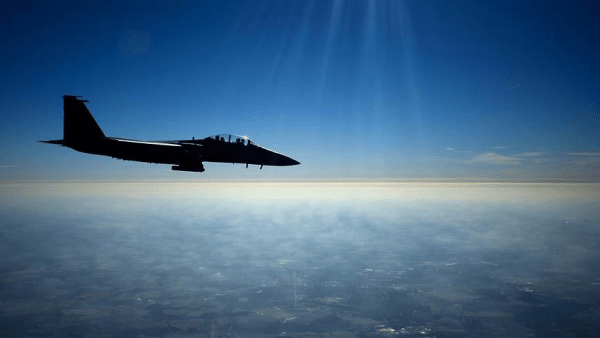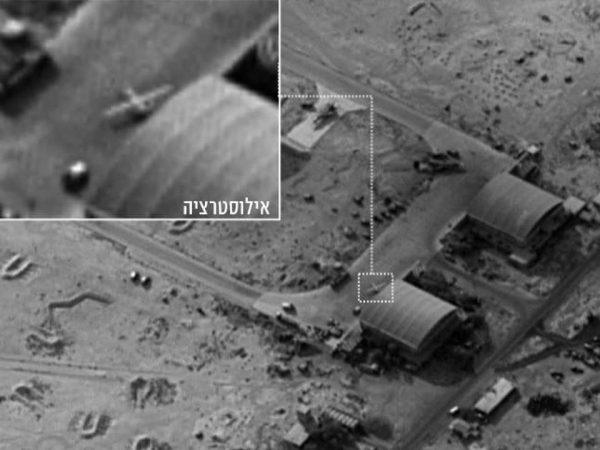The contention between Iran and the West seems these days to be a permanent feature of the global diplomatic scene. Iran’s decades-old nuclear ambitions, which began to build significant real-world traction some ten years ago, set in motion a seemingly endless trend of strife between the Islamic Republic and the free world. While this strife has produced its fair share of consequences over the years—mostly in the form of national and international sanctions—it had more or less stayed clear of open conflict. True, Iran and its enemies have been duking it out via proxies for quite some time; whether in the context of the Yemeni civil war or through Iran’s backing of Islamist militant groups, the belligerents have mostly avoided direct confrontation. This is now beginning to change.
The disorder brought to Syria by the still-waging civil war turned the country into a battlefield for a variety of conflicts. While the actual conflict that triggered the war, namely the revolt against the Assad government, may very well soon come to a close in the regime’s favor, some of these tertiary clashes between nations that began in Syria may have much longer-term consequences. Nowhere is this concern stronger than when it comes to the schism playing out between Iran and Israel.
Of course, Israel has hit Iran before in response to its nuclear program. Israel was implicated by both the United States and Iran itself in a series of assassinations of Iranian nuclear scientists. The infamous Stuxnet cyber worm attack that devastated Iranian centrifuges is widely understood to have been the joint operation of Israel and other Western allies.

But these were all within the realm of dark operations—surgical attacks that were designed to be as discreet as possible. The recent Israeli airstrikes that hit a Syrian base in central Homs province were different. This was an open assault on Iranian personnel stationed in the country.
The Syrian base that was hit, known as the T-4 Airbase, a launching pad for the Syrian air force, has also become a forward outpost for the Iranian Revolutionary Guard Corps (IRGC). Among other reasons, the corps is interested in establishing these bases in order to have a close striking point with which to harass Israel.
The drone that flew into Israeli airspace back in early February and was subsequently shot down also emanated from the same T-4 base. Not surprisingly, the high-profile Iranian casualty Colonel Mehdi Dehghan was a member of the IRGC’s Aerospace Force unmanned aerial vehicle (UAV) unit, underscoring the fact that for all intents and purposes, T-4 is an Iranian long-range strike installation. Dehghan was just one of at least seven Iranians killed in the attack.

It is important to put the strategic situation in Syria into perspective. Iran has deployed a huge number of military personnel in the country. Forces deployed by Iran in Syria today very likely outnumber all of Bashar Assad’s military units. These forces include soldiers from the Iranian army, IRGC personnel, and a wide spectrum of militias (some Iranian, some not).
According to the National Council of Resistance of Iran (NCRI), the Ayatollahs pay monthly salaries to over 250,000 fighting men and other military “agents” in Syria. From the viewpoint of Israel and its defense apparatus, the whole of Syria is one big, country-sized Iranian military platform. Over the past several months, Israel’s engagement with Iran within the “Syrian arena” has slowly escalated, to the point where it can now be firmly said that Israel is directly confronting the Islamic republic.
Of course, this development is pretty important in and of itself. But the full significance can only be appreciated within the broader context of all the other international attention being given to Syria and Iran as of late.
In reporting on Monday’s strikes by Israel, the Lebanese TV channel Al Mayadeen, which is closely associated with the Assad regime, made the audacious claim that by executing the attack, Israel was acting as the long arm of the United States, which has wanted to hit Syria itself but has refrained in order not to provoke Russia.
While it is patently ludicrous to suggest Israel was acting on behalf of another nation when its own interests in attacking the T-4 base are clear and obvious, Al Mayadeen did hone in a partial truth.
In recent months, both Syria and Iran have been drawing the wrath of the US and much of the international community, although not necessarily for the same reasons. President Trump for his part has made it almost a personal vendetta to undo the current Iran nuclear deal, the international compromise orchestrated by the Obama administration known as the Joint Comprehensive Plan of Action (JCPOA). Trump had made dismantling JCPOA a running point during his campaign. Trump claimed it gave too much leeway to the Iranians and doesn’t safely prevent Iran from obtaining a nuclear weapon.
In January, Trump issued an ultimatum. He told Congress and European partners they had until May 12 to reform JCPOA to something more to his liking, or else he would refuse to reaffirm the deal, effectively withdrawing the United States from the pact. As the deadline approaches, US diplomats are busy at work trying to come to some agreement with European allies on how to change around JCPOA to something everyone can back. Many key European countries have given a definitive no to restructuring the nuclear deal.
Iranian leaders are getting antsy, seeing an American pull-out as imminent. In a recent speech at the national Nuclear Technology Day celebration, Iranian president Hassan Rouhani threatened the US of the consequences it would suffer for leaving JCPOA. “If the deal breaks, they will surely regret it. They will witness the fallout in less than a week,” Rouhani said. The Iranian president added that the country’s “nuclear industry is moving faster than before with more energy, accuracy and more exact calculation,” and that if the US were to break the deal, Iran could return to military-grade enrichment of uranium within “two days.”
Concern that the nuclear deal conflict could escalate into a crisis was compounded recently in leaked statements from Israeli intelligence leadership. On April 4, Israeli media reported that Yossi Cohen, head of Israel’s Mossad, told colleagues in a meeting that he is “100 percent certain” that Iran remains committed to developing a nuclear bomb. Cohen allegedly called the JCPOA a “terrible mistake” and said the international community must change or scrap its nuclear deal with the Islamic Republic. Cohen’s essential claims, in line with both Trump’s position and that of Israeli Prime Minister Benjamin Netanyahu, are that JCPOA keeps key elements of Iran’s nuclear program intact and allows the country to remove other restraints in a few years.
This piece of information is pretty significant considering that earlier Mossad leadership was very much supportive of coming to a deal with Iran. While there is certainly still much controversy within Israeli leadership in regards to JCPOA, Cohen’s statements in support of the naysayers will certainly be a significant factor in formulating a strategy to counter Iranian aggression.
A third factor in all of this is the recent uproar in reaction to Syria’s alleged use of chemical weapons against civilians in the western Ghouta region. The kickback from reports of the attack has been so severe that even Trump, who’s recently been rather hellbent on removing American troops from Syria ASAP, has promised a US response. More importantly, international condemnation of the attack has come down hard on Iran, who many see as a de facto accomplice in anything Syria does—which is, in all honesty, a pretty accurate assessment. Feeling the pressure, Iran has responded by both condemning the use of chemical weapons and denying that Syria ever did.
Iran’s claims will probably do little to stop an international response to Ghouta, which seems like it might be soon in coming. The UN will hold a special inquiry into the attack, and the US has promised unilateral action if a satisfying resolution isn’t produced.
With a serious intervention into Syria on the horizon, the stage is set for significant moves to be taken against Iran’s buildup in Syria.


